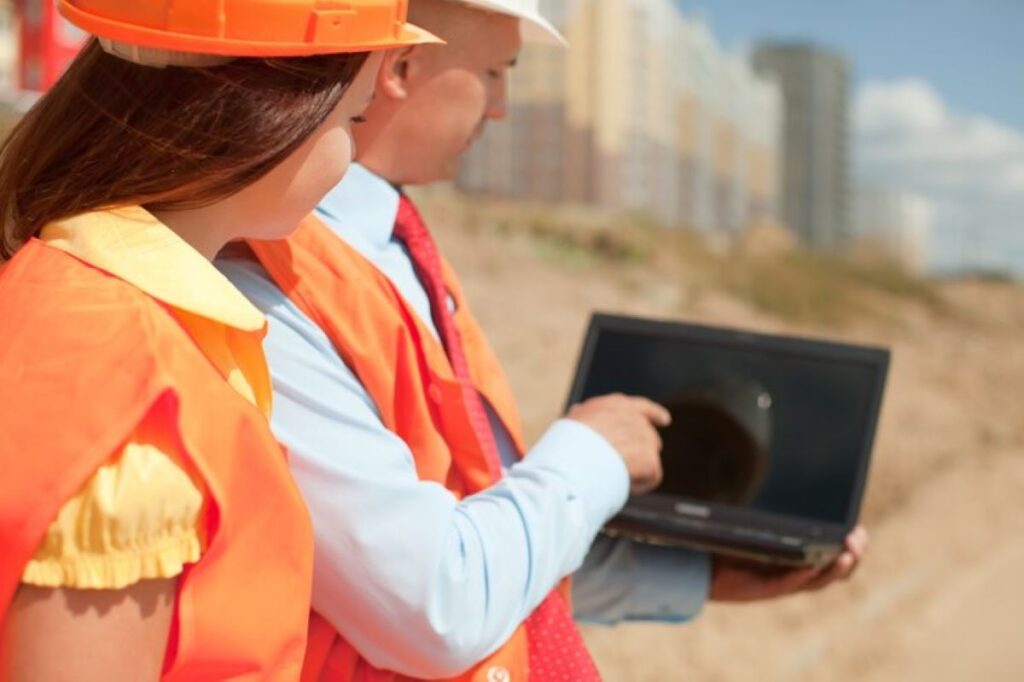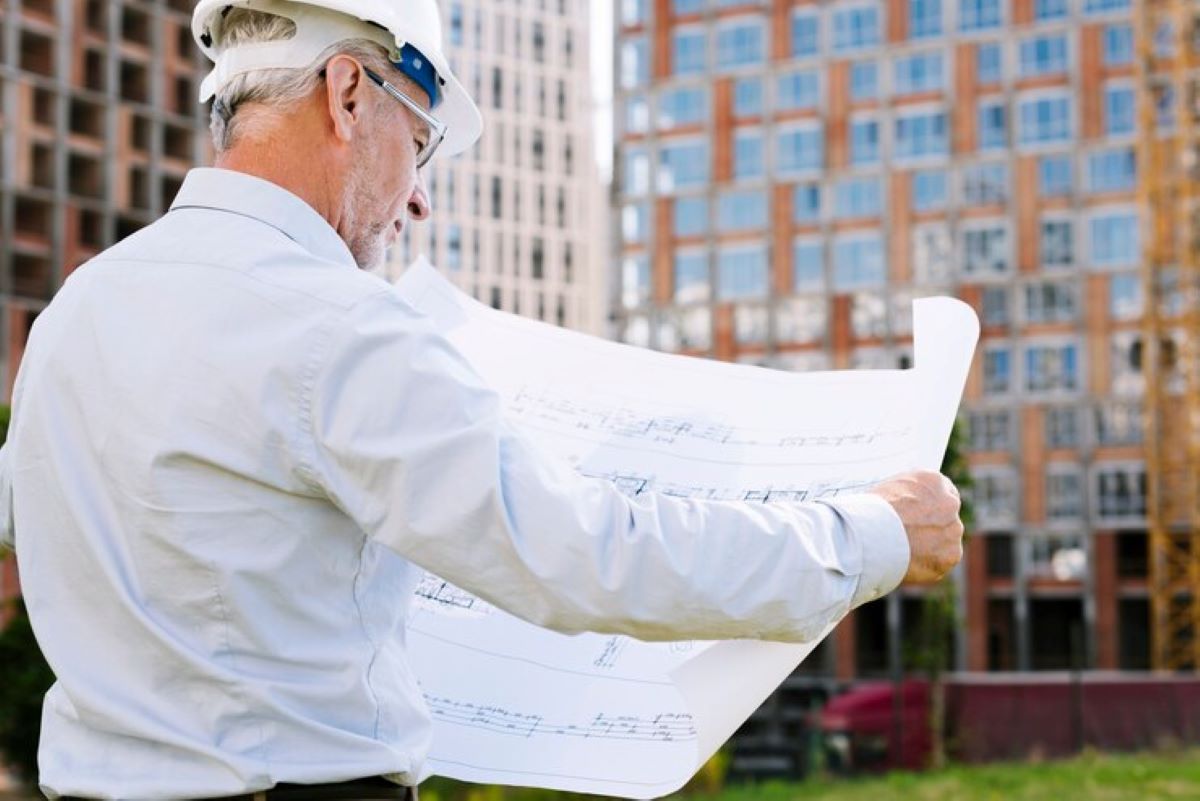In the dynamic and ever-evolving landscape of construction, the role of a surveyor is invaluable. They are the backbone which underpins socially, environmentally, and economically responsible development in Sydney. This article delves into the multifaceted responsibilities of surveyors, exploring their crucial contributions to ensuring successful construction projects within our bustling city.
Understanding the role of a surveyor in construction
Sydney surveyors play a central role in the construction process, acting as the vital link between the accessibility of land and successful building projects. Their expertise encompasses a broad range of technical aspects that are essential for any construction initiative, including land evaluation, risk assessment, and regulatory compliance. By collaborating with architects, engineers, and contractors, surveyors ensure that construction efforts align with legal, environmental, and community standards.
The technical expertise of a surveyor
Surveyors are equipped with a wealth of technical knowledge essential for various stages of construction. They employ advanced technology, such as laser scanning and GPS, to gather precise data about land and properties. This data enables them to develop accurate site plans, maps, and measurements that are integral in the planning phase of construction. Such precision is vital in preventing costly construction errors and delays.
Moreover, their capabilities extend beyond mere measurement. Surveyors are trained in interpreting and analysing data, allowing them to provide valuable insights. They can assess soil conditions, understand hydrological patterns, and evaluate topographical features, all of which inform the construction strategy and its feasibility. Their findings contribute to making informed decisions that hinge on sound engineering principles. For instance, a surveyor’s analysis of soil stability can determine the type of foundation required for a building, ensuring that it is both safe and sustainable. This multifaceted approach not only enhances the quality of the construction but also promotes longevity and resilience in the built environment.
The legal responsibilities of a surveyor
Alongside their technical prowess, surveyors also shoulder a significant legal responsibility. They must ensure that all surveying activities are conducted in accordance with local and national regulations. This includes adhering to the Building Code of Australia, zoning laws, and environmental protection guidelines. Failing to comply with these regulations can lead to severe penalties, project delays, and compromised safety.
In addition, surveyors often serve as expert witnesses in legal disputes, using their specialised knowledge to provide evidence in court. Their understanding of regulations and standards is critical in resolving conflicts that may arise during the construction process. Thus, the legal scope of a surveyor’s work is not just an incidental duty but a core component of their role in ensuring compliance and accountability within the industry. Furthermore, they play a crucial part in community engagement, often liaising with local authorities and residents to address concerns regarding land use and development. This dialogue fosters transparency and helps build trust between developers and the communities they impact, ultimately leading to more harmonious and sustainable development outcomes.
Why Sydney surveyors are crucial for construction projects
Sydney’s unique geographical and regulatory landscape makes the role of surveyors particularly pertinent. The city is characterised by its coastal areas, diverse terrains, and a distinctive urban environment, all of which pose challenges that require skilled navigators.
Navigating Sydney’s unique geographical challenges
One of the outstanding features of Sydney is its varied geography, which includes everything from coastal erosion to steep terrains. These complexities necessitate thorough surveying to assess site suitability before construction begins. Surveyors are adept at identifying potential risks related to groundwater, land stability, and accessibility, providing crucial insights that guide planning and design.
Their ability to adapt techniques to address the geographical nuances of Sydney not only optimises safety but also enhances overall project viability. Surveyors are essential in developing solutions that respond thoughtfully to environmental factors, often incorporating sustainability practices into their assessments. For instance, they may employ advanced technologies such as LiDAR (Light Detection and Ranging) to create detailed topographical maps, which help in visualising the terrain and identifying optimal construction sites. This level of precision is vital in a city where the landscape can dramatically influence the success of a project.
Complying with Sydney’s construction regulations
Compliance with Sydney’s construction regulations is paramount in any development project. Surveyors ensure that projects align with the city’s specific guidelines related to planning, building codes, and community standards. Their knowledge of local policies facilitates smoother interactions with municipal authorities, allowing for a more efficient approval process.
Moreover, as developments increasingly focus on maintaining environmental integrity, Sydney surveyors are instrumental in assessing projects’ impacts on local ecosystems. Their expertise aids in ensuring that construction processes respect natural habitats, fostering a balance between development and conservation. In addition to this, surveyors often collaborate with environmental consultants to conduct comprehensive impact assessments, ensuring that all potential ecological consequences are thoroughly evaluated. This collaborative approach not only helps in mitigating adverse effects but also promotes a culture of responsibility among developers, ultimately benefiting the community and the environment alike.

The impact of professional surveying on project success
The ramifications of professional surveying extend beyond mere compliance and technical accuracy; they significantly influence the overall success of construction projects. Surveys are not just a preliminary step; they underpin the entire development process, minimising risks and maximising efficiency.
Ensuring accuracy and precision in construction
Accurate surveying lays the groundwork for successful construction projects, ensuring that every aspect of the build is based on reliable data. From the initial land survey to the final checks before project completion, precision guides architectural decisions, optimises material usage, and aligns construction practices with the intended design.
The attention to detail provided by professional surveyors helps to keep projects within budget and on schedule. By identifying potential issues early in the process—such as design flaws, site complications, or regulatory discrepancies—surveyors enable teams to resolve problems before they escalate, ultimately saving time and costs. Furthermore, the integration of advanced technology such as 3D laser scanning and drone surveying has revolutionised the field, allowing for even greater accuracy and efficiency in data collection. These innovations not only enhance the precision of measurements but also provide visual representations that can be invaluable during the planning and execution phases.
Mitigating risks and avoiding costly mistakes
Risk management is a critical component of any construction project, and proficient surveying is a fundamental tool in this regard. Surveyors assess various risks, from geological instability to environmental hazards, and provide insights that inform project adjustments. By proactively addressing these challenges, they help avoid significant financial losses and project delays. Click here to get about How to Read a Contour Survey Plan for Site Planning.
Engaging experienced surveyors also enhances stakeholder confidence, as accurate assessments and compliance reduce the likelihood of disputes and redesigns. The reassurance provided by professional surveying translates into smoother project execution and enhanced reputational integrity for all parties involved. Moreover, the collaborative nature of surveying fosters communication among various stakeholders, including architects, engineers, and contractors. This synergy not only streamlines workflows but also encourages a culture of transparency, where issues can be addressed collectively, further mitigating risks and ensuring that the project remains aligned with its original vision and objectives.
Choosing the right surveyor for your Sydney construction project
Selecting the appropriate surveyor is critical to the success of any construction project. With numerous professionals available, identifying the right fit based on specific project requirements is essential.
Key qualifications to look for in a surveyor
When choosing a surveyor, professionals should possess certain key qualifications. Look for surveyors who are licensed and accredited by relevant industrial bodies, such as the Institution of Surveyors Australia. Their experience in similar projects can also be a significant indicator of their capability, alongside strong knowledge of local laws and regulations.
Additionally, assess their technical competencies in various surveying techniques and tools. A proficient surveyor should be comfortable implementing modern technologies such as GIS (Geographic Information Systems) and drone surveying to enhance accuracy and efficiency. Effective communication and collaboration skills are also crucial, as surveyors must interact regularly with other construction professionals and stakeholders.
The value of local knowledge and experience
Local knowledge and experience can provide an invaluable competitive edge when selecting a surveyor for projects in Sydney. Familiarity with Sydney’s unique challenges, terrain, and regulatory environment means the surveyor can also foresee potential issues that an outsider might not consider.
Furthermore, established local surveyors have built relationships with municipal authorities, which can facilitate smoother administrative interactions during the approval process. Their insights into local community needs and environmental considerations are equally essential in ensuring that construction projects align with the broader goals of sustainable development.
Moreover, a surveyor with extensive local experience can offer valuable insights into the historical context of the area, which may influence design choices and construction methods. Understanding the local architecture, cultural heritage, and community sentiments can lead to a more harmonious project that resonates with residents and stakeholders alike. This local perspective can also aid in navigating any potential opposition from community groups, as a knowledgeable surveyor can help address concerns proactively and foster positive relationships throughout the project lifecycle.
Additionally, the ability to adapt to Sydney’s ever-changing urban landscape is paramount. A surveyor who is well-versed in the latest trends, such as urban infill and mixed-use developments, will be better equipped to provide innovative solutions that meet both current and future demands. This foresight not only enhances project viability but also contributes to the overall growth and sustainability of Sydney’s infrastructure.

The future of surveying in Sydney’s construction industry
The surveying profession is undergoing significant evolution as technological advancements continue to shape the construction landscape. This exciting trajectory opens new horizons for how surveying is conducted in Sydney.
Technological advancements in surveying
Recent technological innovations have revolutionised surveying practices. Tools such as drones and 3D laser scanning have transformed traditional methods, enabling surveyors to gather more comprehensive data in less time. These advancements provide higher accuracy, faster turnaround, and enhanced visualisation of site conditions.
Furthermore, the integration of Building Information Modelling (BIM) and Geographic Information Systems has enhanced collaborative efforts among construction teams. By offering real-time data and facilitating communication, these technologies help ensure that all stakeholders, including surveyors, are aligned in their objectives.
The evolving role of surveyors in sustainable construction
As sustainability becomes a increasingly pressing concern, the role of surveyors is evolving to incorporate more environmentally focused practices. Surveyors now assess not only project viability but also its environmental impact, contributing to sustainable construction methodologies.
Engagement in eco-friendly practices, such as flood risk assessment and green building certification, is becoming commonplace in the profession. This shift signals a broader understanding that the future of construction is intrinsically tied to ecological considerations, allowing surveyors to play a pivotal role in shaping sustainable development within Sydney.
In conclusion, the importance of professional Sydney surveyors in construction projects cannot be overstated. They provide indispensable technical expertise, ensure legal compliance, and mitigate risks—all of which contribute to the success of projects in a complex urban environment. As the industry continues to evolve, surveyors will remain a vital element in fostering responsible and innovative construction practices in Sydney.

